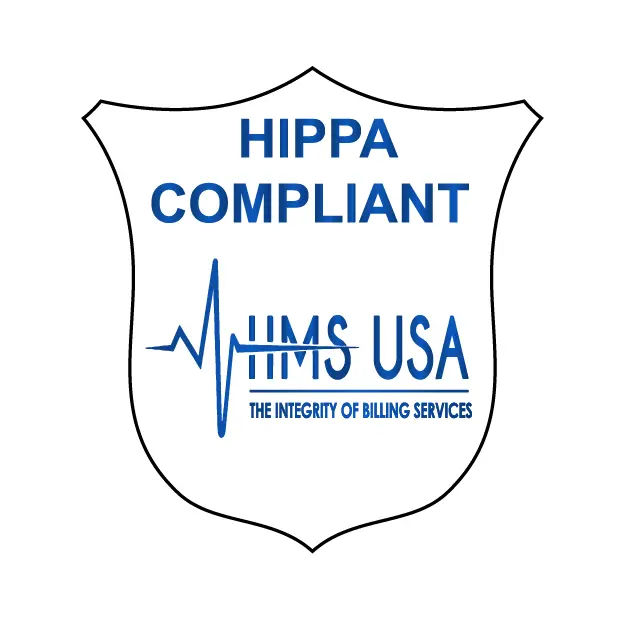
Facts of Artificial Intelligence In Medical Billing & 10 Benefits of Artificial Intelligence In Healthcare
In recent years healthcare has experienced significant technological advances among the areas that have seen an important transformation is medical billing. In the past, medical billing processes have been manual, slow, and prone to mistakes that resulted in delays in reimbursements to healthcare providers. With the introduction of artificial in intelligence medical billing systems. These problems are being tackled, transforming the method of handling medical billing. We’ll discuss the significance of AI in healthcare billing, its advantages, challenges, and the possible impact it could have on the healthcare industry.
I. Understanding Medical Billing
Before we get into details of AI’s role in medical billing essential to know the nature of medical billing, medical billing is the procedure of submitting and pursuing claims to health insurance companies to receive reimbursement for medical services provided to patients. This complicated process involves several steps that include the registration of patients, confirming insurance coverage as well as coding diagnoses and procedures, including claim submission and collection of payment.
II. The Need of Artificial Intelligence In Medical Billing
The traditional medical billing process requires a significant amount of manual entry, paperwork, and men force. Which makes it susceptible to human error, delays, inefficiencies, and mistakes. In addition, the constantly changing codes and regulations in the healthcare field make it difficult for professionals. In the field of billing to remain current. This is the point at which AI helps to solve these issues and change the world of medical billing.
III. How AI Transforms Medical Billing
-
Automated Data Entry
Medical billing systems powered by AI utilize optical character recognition (OCR) technology to process and read written or printed documents, such as medical forms, insurance records, and bills. Artificial intelligence in medical billing dramatically reduces the time and effort needed for data entry. While reducing mistakes and ensuring that the information is accurate.
-
Real-time Eligibility Verification
Artificial intelligence in medical billing algorithms can instantly confirm the insurance coverage of patients. Which ensure that they’re eligible for the medical services they require. This prevents providers from providing services to patients with no valid insurance, thus reducing the chance of denials and uninsured treatment.
-
Intelligent Coding and Documentation
Ai in healthcare billing analyzes medical documents and records from clinical studies to determine the most appropriate medical codes for diagnosis and procedures. Natural Language Processing (NLP) algorithms can understand and extract crucial details from medical notes, which makes codes more precise and reduces the chance of denials of claims due to errors in coding.
-
Claim Scrutiny and Optimization
Artificial intelligence in medical billing systems can examine claims. Before submission and check for any errors or missing data which could result in rejections. By optimizing claims before submission. They can increase their chances of receiving reimbursement promptly.
-
Predictive Analytics to Manage Denials
AI can examine historical billing data to find patterns and trends related to claims denials. Artificial intelligence in medical billing allows billing companies to avoid future denials and improve the revenue cycle proactively.
-
Fraudulent Claims
Artificial intelligence in medical billing can help identify fraudulent claims by analyzing vast amounts of billing information and identifying suspicious activity. Which can save the healthcare system billions of dollars every year.
IV. Benefits of AI in Healthcare Billing
Improved efficiency
AI streamlines the medical billing process, reducing time spent doing repetitive tasks and permitting billing professionals to concentrate on more complex issues.
Improved Accuracy
AI eliminates manual data entry errors and coding errors and ensures accurate billing information, and reduces claims rejections.
Faster Reimbursements
With AI improving the efficiency of billing processes and reducing errors. Healthcare providers can anticipate faster payments from insurance firms.
Cost Savings
Using AI-powered medical billing systems could result in significant cost savings by decreasing administrative overheads and optimizing the utilization of resources.
V. Challenges and Considerations
Although the incorporation of artificial intelligence medical billing can provide many benefits, some challenges must be addressed:
Data Security
Since artificial intelligence medical billing software processes sensitive patient data security, data security and compliance with healthcare regulations are crucial to prevent breaches and safeguard the privacy of patients.
Integration and Adoption
Implementing AI-powered billing solutions could require significant investments in technology and education. Making sure that the system is seamless in the integration of existing methods for healthcare is essential for successful adoption.
Human Oversight
AI systems aren’t impervious and human oversight is vital to detect any discrepancies or errors that AI could overlook.
10 Benefits of Artificial Intelligence in Healthcare
- Artificial Intelligence (AI) has contributed significantly to the healthcare industry, transforming how medical services are delivered, assessed, and managed. Here are 10 Benefits of Artificial Intelligence in Healthcare:
- Improved Diagnostics and Improved Diagnostics and Imaging artificial intelligence in medical billing algorithms can analyze vast quantities of medical data such as images from X-rays, MRIs, and CT scans. These algorithms can identify patterns and anomalies that could be missed by the human eye and can lead to more accurate and earlier diagnoses.
- Artificial intelligence software can analyze patient information, medical history, and genetics to design customized treatment plans for each patient’s unique requirements. This increases the effectiveness of treatments and lowers the chance of developing adverse reactions.
- It accelerates the process of developing drugs by analyzing massive datasets to find potential candidates for drugs. It aids researchers in finding novel treatments for ailments and speeds up developing and testing new medicines.
- AI can analyze patient data and anticipate possible health problems or complications. Also allowing healthcare professionals to take preventive steps and intervene before the condition worsens.
- Wearables powered by AI and sensors can monitor the vital indicators of patients and health indicators continuously. This real-time data allows healthcare professionals to monitor patients’ health conditions and provide timely interventions remotely.
Virtual Assistants in Healthcare Billing
- Similar to chatbots, can respond immediately to questions from patients, provide general medical advice, and help schedule appointments. This increases patient engagement and improves the overall experience in healthcare.
- Artificial intelligence in healthcare can analyze global health data to track the spread of disease and predict the possibility of outbreaks. The early warning system can help health officials take swift steps to stop the spread of infectious diseases.
- Workflow Optimization artificial intelligence in medical billing simplifies the administrative processes in healthcare, including scheduling appointments, billing as well as medical record management. This optimizes the administrative burden on healthcare providers and increases overall efficiency.
- AI-enabled robotic surgical robots aid surgeons in performing complicated procedures with greater accuracy and precision. This minimally invasive procedure reduces the risk of trauma to patients and speeds recovery, and reduces the chance of complications.
- Mental Health Support Artificial Intelligence-driven mental health platforms can offer individualized therapy and counseling for those struggling with anxiety, stress, or depression. These platforms provide easy and scalable assistance, particularly in areas with limited available resources for mental health.
Conclusion
In conclusion, introducing Artificial Intelligence in medical billing has opened the door to a time of efficiency and accuracy. Through automating data entry, improving accuracy in coding, and enhancing claims submissions. Ai in healthcare has improved the process of medical billing, which has resulted in faster reimbursements to healthcare providers and reduced the risk of errors. Furthermore, the advantages of AI in healthcare billing are changing how doctors diagnose and personalized treatment plans and drug discovery, and monitoring of patients.
As AI technology advances and improves. We can anticipate more innovative applications to revolutionize the healthcare industry and make it more patient-focused, cost-effective, and accessible. However, it is vital to address the issues in data security, integration as well as human oversight, to ensure a responsible and efficient use of AI in healthcare.
The future of medical billing and AI in healthcare appears promising. Providing an exciting and transformative pathway to better patient care and efficient administration of healthcare. As healthcare professionals continue to embrace the latest technological advances and advances, patients, healthcare providers as well as the whole healthcare system are likely to benefit from the potential of Artificial Intelligence.
Real More: 13 Most Common Medical Billing Errors and How to Avoid and Fix Them











